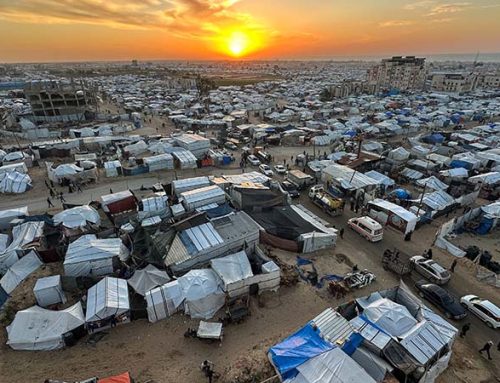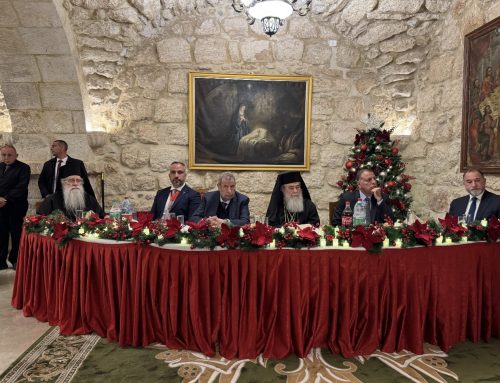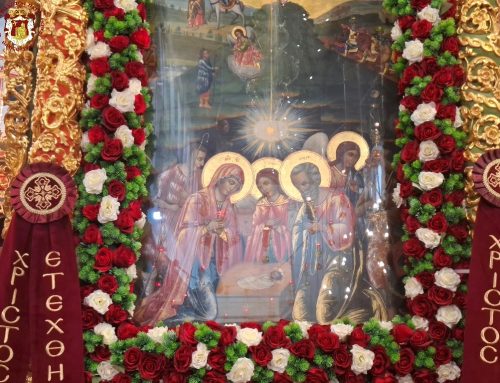Beirut – The Lebanon crisis is tinged with blood and rekindles in the collective unconscious of many Lebanese the nightmares never erased from the years of the civil war. After the death of seven Shiite demonstrators killed Thursday, October 14 in Beirut by snipers posted on the roofs of the “Christian” district of Tayouneh, the Hezbollah party and the Shiite press attacked the militiamen of the Lebanese Forces, a party led by Christian leader Samir Geagea, as the perpetrators of the massacre, Hezbollah denies the accusations of having carried out a premeditated “ambush”, interpreting the event as a simple case of self-defense of the inhabitants of the neighborhood in the face of aggression and provocation Shiite activists.
Sectarian rhetoric about militias engaged in the “defense” and “protection” of so-called “Christian” neighborhoods against incursions by groups linked to the Shiite parties of Hezbollah and Hamas is resurfacing in the media and in the contributions of some analysts. But the Maronite priest Rouphael Zgheib, National Director of the Pontifical Mission Societies, raises the alarm: “Many signs”, Father Zgheib explains to Fides, “reveal that once again the Lebanese land, in the throes of an unprecedented crisis, remains a battleground for regional and global geopolitical games. Those who play these games know very well that in Lebanon, to blow everything up it is necessary to ignite religious conflicts, and to disguise one’s moves under that guise. But this is also well known by many Lebanese. Everyone saw how operations of this kind were carried out during the terrible years of the civil war. No one has forgotten this, and no one wants to go back to this atrocious time”.
Thursday’s massacre took place after a protest by Amal and Hezbollah militants entered the Christian neighborhood of Tayouneh, where militants of the Lebanese Forces have historically taken root, near the demarcation line that divided the Christian neighborhoods from Shiite ones in Beirut during the sectarian conflict that began in 1975. The demonstration was called by Amal and Hezbollah to ask for the removal of judge Tarek Bitar, responsible for the investigation that is targeting men from Amal – a party led by Speaker of Parliament Nabih Berri- for their alleged criminal responsibilities in the tragic explosions that devastated the port of Beirut on August 4, 2020.
In the complicated Lebanese political scenario, made even more incandescent by the social and economic crisis that is bringing the country to its knees, local political factions and their respective regional and global geopolitical representatives are aiming to gain ground in view of the elections, scheduled for March 2022. According to some analysts, in this context, the militants of the Lebanese Forces again flaunt the arguments of the militia logic typical of the years of the civil war, trying to gain the reputation of “protectors of Christians” against the prevaricating strategies of the Shiite political forces. Lebanese sources contacted by Fides invite us to keep in mind the geopolitical factors that condition the complicated Lebanese scenario, where alliances are always changing and seem on the verge of giving way even to the alignments of forces which, in recent years, seemed more than solid. Hezbollah and Amal, Shiite formations that clashed militarily during the civil war, now appear to be linked by an iron axis.
Amal’s men, in particular, cannot digest Judge Bitar’s investigation, and the seven protesters killed by snipers last Thursday all belonged to Amal. Geopolitically, Hezbollah remains tied to Iran, while Berri (Amal’s leader) ties to the United States are well known. Last Thursday, at the very moment of the Beirut massacre, Victoria Nuland, assistant to US Secretary of State Tony Blinken, was visiting the Lebanese capital. In the statements she made at the end of her whirlwind trip, she assured further US financial aid to the Lebanese army and described the promises of energy support to the Lebanese economy from Iran as inconsistent.
At the same time, in recent days, circles close to Amal’s leaders have accused President Michel Aoun of politically supporting Judge Bitar’s investigations as a means of captatio benevolentiae to re-establish less tense relations with the current US administration. Controversial details, sometimes contradictory, which make even more evident the banal and misleading character of the invocation of the “clash” between Christians and Muslims as a hermeneutical key to understand the dynamics at work in the complex scenario of Lebanon. For a long time, confessionalism and confessional contrasts are used as a vector of terrorist or military provocations, aimed at modifying the fragile balance of forces and sabotaging the prospect of peaceful coexistence between different peoples.
Source: Agenzia Fides






